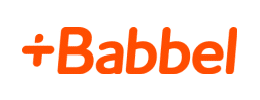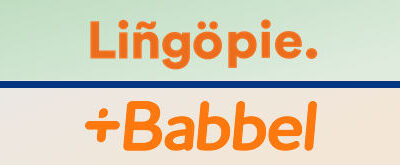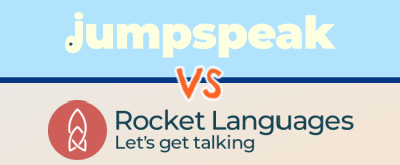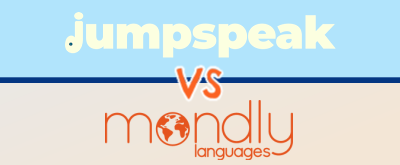Babbel and Busuu are two popular language learning platforms, each with its own unique features and approach. In this article, we take a detailed look at their differences so you can decide which of these language apps best suits your needs.
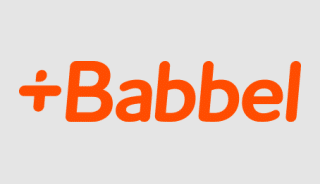
Sale: 55% OFF
Applied in Cart
|
$8-$15/mo |
The perfect language app for newcomers. Although Busuu has Babbel beat on price, the Babbel courses overall are more well-rounded and effective. |

Sale: 10% OFF
Applied In Cart
|
$3-$14/mo |
Busuu features short, game-like lessons, and while we like the community feel of their app, their curriculum ultimately falls a bit short. |
Video: Babbel or Busuu?
In the video above, Bianca from the Guide2Fluency team compares the language learning apps from Busuu and Babbel.
Editor’s Choice
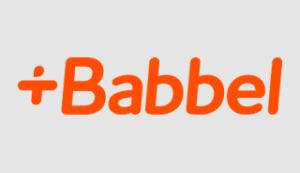
Babbel
- Multiple Subscription Options
- Money Back Guarantee
Pros
- Lessons are more well-rounded in comparison to Busuu
- Diverse mix of practice drills that cover expressive and receptive language skills
- Review sessions aid in material retention
- Modern, easy-to-use digital platform and mobile app
- Our team loves the bonus podcasts offered by Babbel
Cons
- More expensive than Busuu
- No free version like Busuu
Why Choose Babbel Over Busuu
To kick this comparison off, let’s start by discussing how the Babbel language courses are organized, and what their strengths are in relation to Busuu.
How The Babbel Language Courses Work
Babbel adopts a comprehensive approach to teaching languages, integrating writing, speaking, reading, listening, and grammar through various drills and mediums.
The company emphasizes this balanced approach as the most effective method for developing conversational skills in your target language.
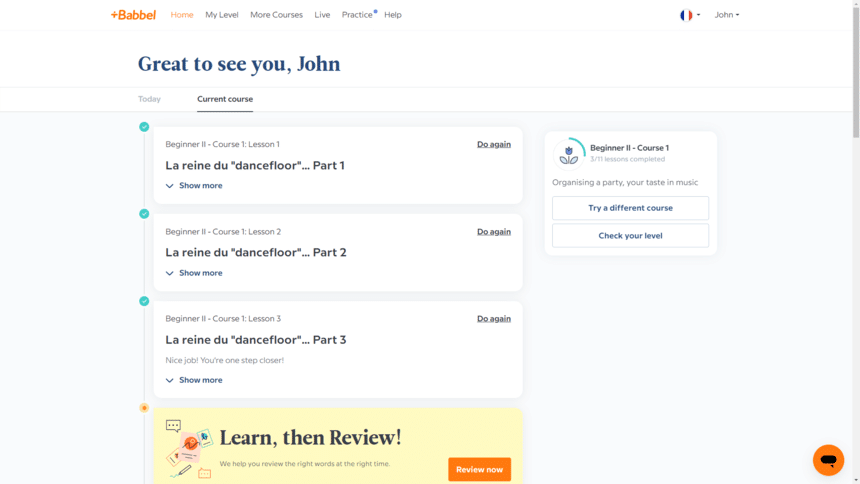
Babbel also includes regular review sessions and offers supplemental tools such as games, podcasts, and stories to help new vocabulary transition from short-term to long-term memory, presenting their method as a straightforward and engaging way to learn.
Speech Recognition Technology
Babbel’s speech recognition technology offers a significant advantage over Busuu. Babbel provides immediate evaluation of pronunciation during verbal practice exercises, prompting you to repeat words and phrases if needed.
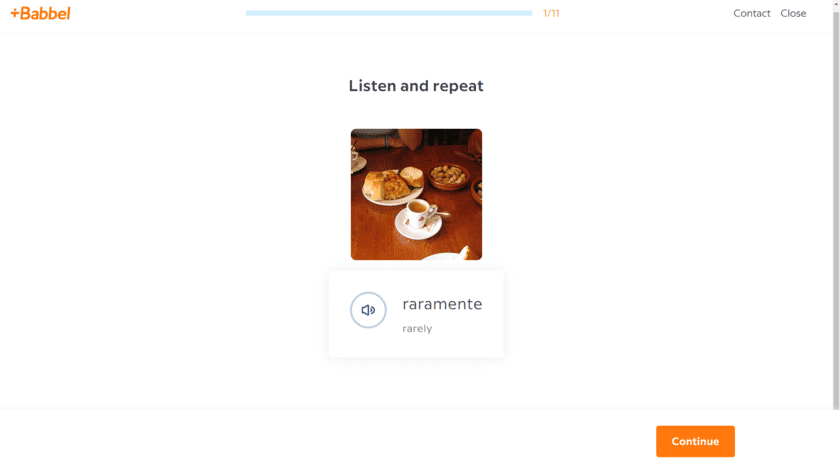
In contrast, Busuu relies on other users for feedback, resulting in longer wait times (30 to 90 minutes) and the possibility of human error. Thus, Babbel’s technology provides more immediate and consistent feedback on verbal practice exercises, regardless of whether you are learning French, Italian or Spanish.
To be fair, Busuu recently introduced their own speech technology, but the early feedback from users is that it’s not nearly as efficient or accurate as Babbel’s.
Flexible Review Sessions
Babbel offers more choices and flexibility in review sessions compared to Busuu. Babbel prompts you to do quick review sessions almost every day before starting your main lesson, covering words and phrases from previous sessions to help material sink in, similar to Duolingo.
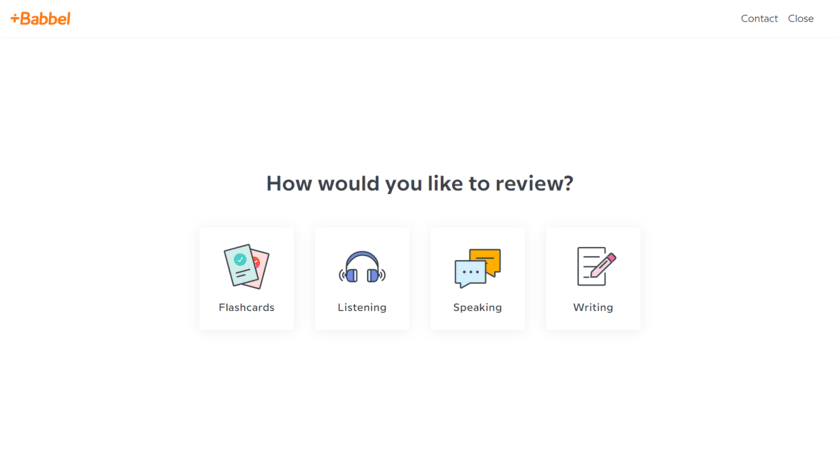
Additionally, Babbel allows you to choose between flashcards, listening drills, verbal practice, or writing exercises for review, enabling you to focus on areas where you may feel less confident.
Lesson Format
While I acknowledge that Busuu has slightly more diverse lessons, I personally prefer the length and engagement of Babbel’s lessons.
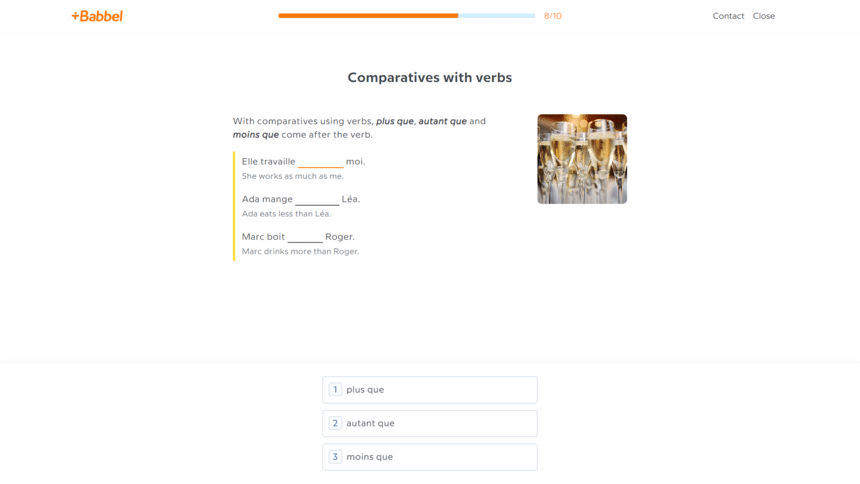
Babbel’s lessons last just 10 to 15 minutes and, for some reason, seem to hold my attention better. If I had to choose a lesson to squeeze in during my commute to work on the train, I would lean towards Babbel’s lessons.
Language Choices
Babbel has an advantage over Busuu in that it offers courses in more languages. If you’re looking to learn Dutch, Danish, Turkish, Swedish, or Indonesian, Babbel is the way to go, as Busuu does not offer courses in these languages. For the record, Rosetta Stone and Duolingo offer more language choices as well.

Busuu
- Free Version Available
- Money Back Guarantee
Pros
- More affordable than Babbel
- Lessons include videos (great for visual learners)
- Helpful grammar instruction
- Personalized review sessions based on AI algorithms
Cons
- Free version is limited
- Courses overall are not as comprehensive as Babbel’s
Why Choose Busuu Over Babbel
Now that we’ve covered Babbel, let’s turn the tables and discuss how Busuu works, and the strengths of their language courses in comparison to Babbel.
How The Busuu Language Courses Work
When you join Busuu, you can begin at the start of the course or take a placement test if you have some knowledge of the language. You then select your desired fluency level and preferred learning schedule.
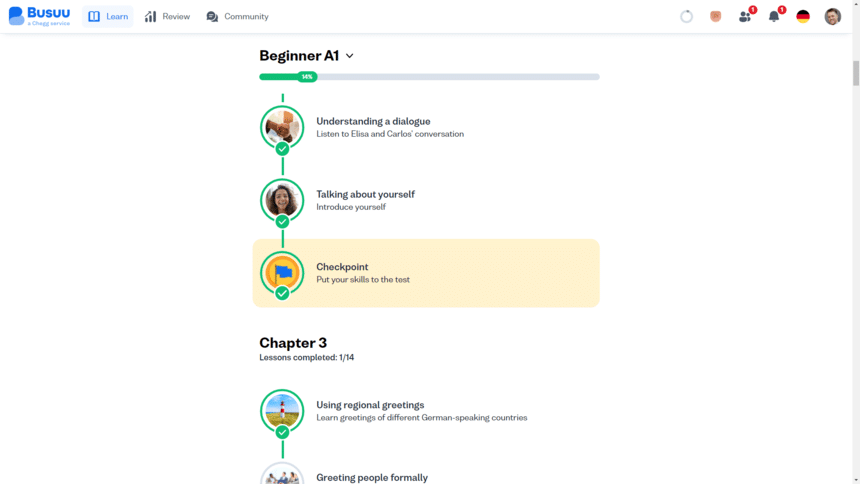
The Busuu dashboard is well-organized, displaying lessons in a linear order and providing access to various tools. Each lesson, lasting about 5 minutes, includes exercises covering the same topic or words, incorporating images, audio recordings, and interactive drills such as fill-in-the-blanks, multiple-choice questions, and matching pairs.
You also have the opportunity to record yourself for feedback from the Busuu community. The course maintains engagement by presenting material in various formats, ensuring an interactive and dynamic learning experience.
Videos Of Native Speakers
I value the inclusion of videos featuring native speakers in Busuu’s lessons, a feature that sets it apart in the language learning industry. While many other programs rely solely on audio recordings, text, and images (see Rosetta Stone), Busuu offers the unique opportunity to observe locals speaking the language.
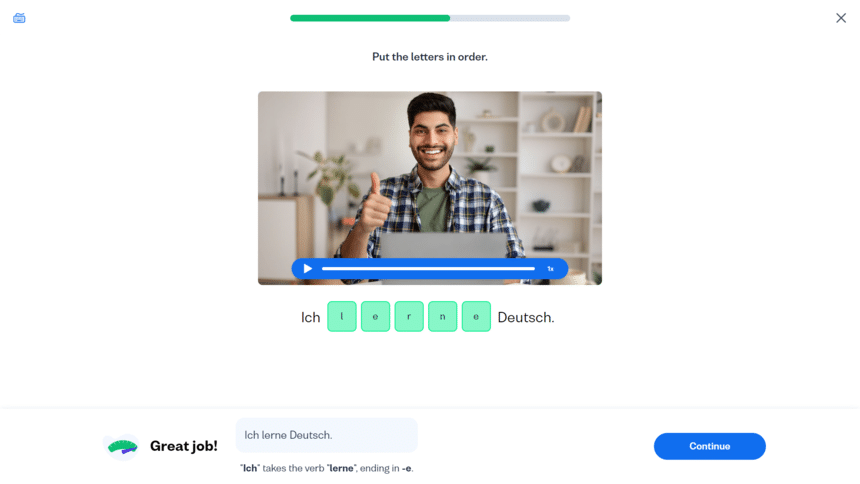
This visual component provides a deeper understanding of body language, hand gestures, and facial expressions, which I believe significantly enhances the learning experience and accelerates language acquisition.
Grammar Explanations
Busuu effectively incorporates grammar instruction and cultural insights into their courses, focusing on important grammar principles every three to four lessons.
Topics such as definite articles, possessive adjectives, and irregular verbs’ present tense are covered with concise explanations, clear examples, and various drills. This streamlined approach ensures efficient delivery of grammar content, making Busuu highly commendable in this aspect.
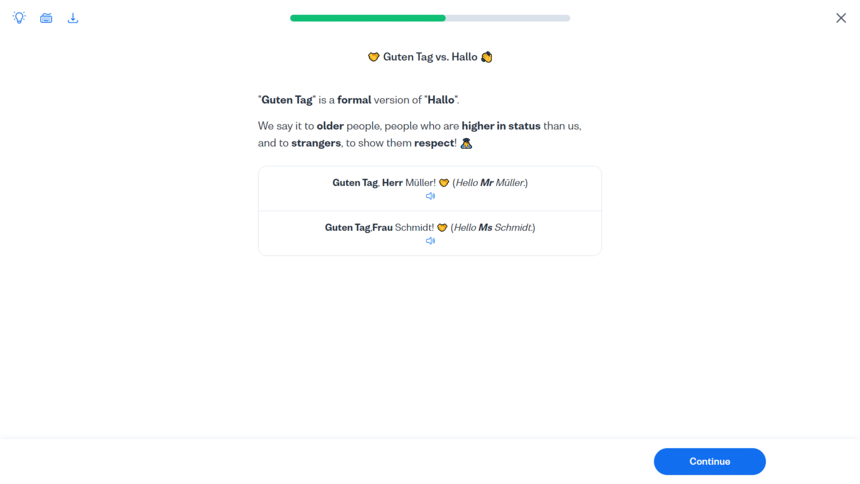
To be fair, Babbel does a great job with grammar instruction as well. All in all, I’d consider this category a tie between the two.
AI-Based Review Sessions
I appreciate Busuu’s use of artificial intelligence to create personalized review sessions for each user. By analyzing results from drills and quizzes, the algorithm identifies individual vocabulary strengths and weaknesses.
This ensures that during review sessions, users focus on words and concepts they need the most help with, using a decay metric and spaced repetition framework to optimize vocabulary retention. Busuu’s investment in this technology is evident, with consistent updates to improve its effectiveness.
Community Feedback
Busuu incorporates a helpful feedback system into its language courses. As you complete lessons, some of your verbal and written practice exercises are sent to other Busuu users for feedback, fostering a sense of community among learners.
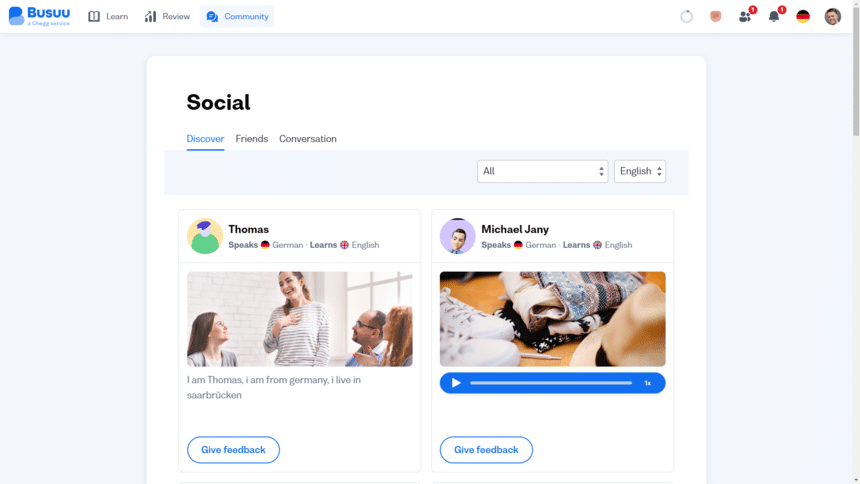
For example, in Italian lessons, you might watch a short video clip and then record yourself describing your reaction, receiving feedback from fluent speakers within 30 to 90 minutes. While this system is supportive, it also has drawbacks, as the feedback providers are not experts, which may lead to inaccuracies.
Verdict: Which Language App Is More Effective?
While both companies offer excellent language courses, I lean towards Babbel due to its lesson length and format, which I find more engaging. However, your choice may differ based on your preferences.
If you prioritize immediate pronunciation feedback and prefer a more individual learning experience over a community feel, Babbel may be the better choice for you.
On the other hand, if you’re a visual learner who values video clips and enjoys a community-like learning environment with constant feedback, then Busuu might be the way to go. Either way, you can’t go wrong with either of these options.
➡️Read Next: Babbel vs Pimsleur
The main differences between Babbel and Busuu lie in their approach and features. Babbel offers structured lessons with a focus on grammar and speech recognition technology, while Busuu emphasizes community interaction, personalized review sessions, and diverse lesson types.
Our team believes Babbel is better than Busuu for learning a new language due to its structured lessons, streamlined grammar instruction, and effective speech recognition technology. The shorter lesson format and diverse review options in Babbel also contribute to its reputation as a more engaging and efficient language learning tool.

